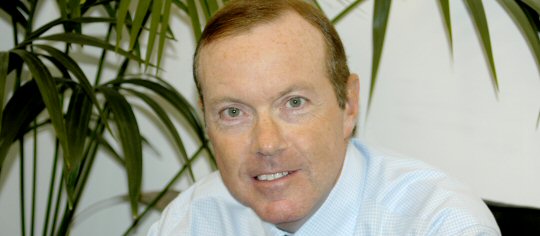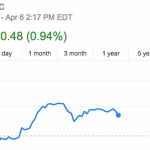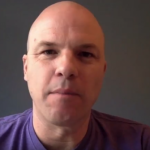
Could you describe what you do and how you earn your living David?
I have been involved with digital media now since 1997, the early days of the commercial internet. Until early 2000 I was global head of media at the investment banking arm of ABN AMRO and witnessed the explosion of digital media. I soon realized that I was witnessing the biggest shake up in communications since the invention of the printing press. I was determined to be a participant rather than an observer. So I started looking for an internet company to invest in and to run: that was when I came across Cheapflights, an attic-based price comparison site. I became CEO and held that role for eight years.
Since then, I have been helping Cheapflights with the handover to a new management team and, with my business partner Hugo Burge, have co-founded a small fund called Howzat Media which invests in early stage internet companies. Our portfolio includes stakes in WAYN.com, the travel social networking site; TrustedPlaces.com, which reviews local businesses predominantly restaurants, clubs and bars; Trivago.com, a hotel price comparison and review site; CheapToday, a Boston-based start up which publishes deals designed to appeal to the American cost-conscious consumer and Academia.edu, a social networking site for the academic community.
I am now scaling back my time on Cheapflights and will probably take on some more part-time board roles helping early stage internet companies achieve the same sort of success which has characterised Cheapflights: in other words, hyper-growth, scale, market leadership, robust profitability and internationalization.
What inspired you to get involved with CheapFlights.com – Where are you with it now?
Cheapflights, in late 1999, when I first looked at it, was a small but perfectly formed internet business. I liked the business model which was a publishing platform for flight prices which the travel industry was keen to access because it provided them with high quality leads. For the general travelling public, it did something which traditional media could not do: comparison of up to date prices, clearly arranged by destination, from a vast range of suppliers, from major airlines through to tiny travel agents.
It was already profitable, its traffic was growing but the founder of the business had taken it as far as he was going to in his Wandsworth attic. He wanted to get out altogether so, together with Hugo Burge, I led a management buy-in.
I liked Cheapflights’ publishing model because it meant you could keep the operation lean and mean. No call centres, shops or customer service agents. And at that time, Cheapflights was the only travel price comparison site in the world. Many brilliant people like Rich Barton (Expedia), Brent Hoberman (LastMinute) and Dinesh Dhamija (Ebookers) were developing online travel agencies and they all became clients of Cheapflights.
But only Cheapflights sourced deals from a variety of flight providers and linked the travelling public with those providers. I suppose we were a bit like Google because what we did was display information, a pure media model.
And of course what a great name: Cheapflights – once heard never forgotten.
Now nine years later, Cheapflights is one of the great British internet success stories. We have grown at over 50% a year.
Unusually for a British internet business, we have prospered in to USA where Cheapflights.com serves a similar purpose to Cheapflights.co.uk.
We also launched Cheapflights.ca in Canada, itself a bigger business now than Cheapfligfhts was in the UK when I first looked at it!
Roughly half our business is now in North America. we launched in Germany (CheapFlug.de) last autumn and are on the brink of launching another new international site.
We are helped now that we have a sophisticated publishing platform capable of being rolled out across different countries very quickly. And of course we have great relationships with the travel industry including companies such as Expedia, Travelocity, British Airways and Opodo all of whom we partner with in different countries.
We did want to float the business last year on the main market of the London Stock Exchange. We spent a small fortune on professional advisors successfully to achieve IPO readiness. However, the market was as a dead as a doornail and it looks like this year will be no different. So we are now focussing 100%v on our operations and are hoping for yet another year of record traffic, sales and profits.
For the travel industry Cheapflights is a cheap place to acquire high quality leads. We are certainly cheaper than traditional media and far more accountable. For consumers we are THE place to find a great flight deal and to avoid being ripped off. We have a great business which should in fact benefit from this economic downturn.
You have invest money and time into some great web businesses, what has been the best business deal you have done?
Too early to say. It may well be Cheapflights; but until we have our exit I cannot make that call. As for the Howzat portfolio, these are early stage companies with huge potential. Only time will tell which is the best of these investments.
What advice would you give a Internet Entrepreneur trying to find funding for their Internet Business?
First try to avoid outside funding: use your savings to get going, and try to persuade family or friends to support you so that you can hold onto the equity. A successful internet business should not need vast amounts of capital, especially with the reducing costs of technology.
If you exhaust your personal connections, find some good angel investors. WAYN for instance was funded initially by the Founder of Friends Reunited, Trivago by the guys behind the German version of Ebay.
And if you do need more significant capital there are a handful of VCs with a track record of backing digital winners. Fund raising is not easy and in the current climate it is exceptionally hard. But a key quality of all successful entrepreneurs is persistance.
Running a Internet Business gives you choices and freedom to do what you want, when you want. What would you say the Internet Lifestyle is for you?
It is certainly a more flexible lifestyle than the traditional economy allows: but it is 24/7 and very, very intense. It is not for the faint-hearted. Especially in the Cheapflights early days (we had three employees at the start including me), the working hours were considerable. So you can forget “work life balance”.
And it was not particularly glamorous. I had to bank the cheques, buy the milk and complain to the landlord when the communal photocopier broke down.
And the competition (Telext backed by the Daily Mail, U-travel backed by Lord Hollick of Express Newspapers and Easyalue backed by Stelios) could have wiped us out if only they had been a bit better managed. This induced a state of constant paranoia which was very stressful.
The Internet Lifestyle allows you to work any hours you like, what’s the biggest benefit of this for you?
Like all entrepreneurs, I suppose I am a bit of a workaholic – to be successful you have to eat, breathe , and dream about your business.
That being said, I am a keen traveller, hiker and skier and at least with modern technology I am never too out of touch.
What would you say is the biggest single reason for your success?
Difficult to say: I boil it down to three.
Firstly, the right experience. I came to entrepreneurship relatively late in life, in my mid 30s. I had a background in finance and strategy consulting which gave me some useful skills. But then I worked for six years in a very successful and well-managed FTSE company reporting directly to its Chairman. That taught me how a very large business is managed. So when I am involved in the early stage of a business, I can readily conceptualize what it should look like as a larger concern. Finally, I have had a lot of cross-border experience having been educated in the USA and having worked for USA and European companies and having lived and worked in France, Germany and Spain. That has been a major contributor to my understanding of how to build a global business and how to deal effectively with colleagues and clients of different nationalities.
Secondly, perseverance. I do not give up easily.
Thirdly, the ability to attract and nurture talent. At Cheapflights, we have had some extraordinarily gifted individuals who have made a huge contribution to our growth. Most stay with the business. There are exceptions and, whilst I never liked losing good people, it was good to see web behemoths such as Amazon and Expedia on the prowl for our team members.
The travel industry is one of the most competitive niche’s. What advice would you give a new webmaster trying to dominating their niche?
There are thousands and thousand of travel sites. The most successful ones are the ones which provide something very special for consumers, and who do the job well, week in week out. They can be huge, they can be tiny. But they must delight their users – otherwise they will wither and die. This is true for all commercial internet sites not just those in travel.
Money is not the answer. Lord Hollick’s UTravel failed, as did Stelios’s EasyValue. And who now remembers Sir Bob Geldof’s effort which was called Deckchair.com? It competed head on with many fine travel agencies and offered nothing special. So, despite a massive advertising campaign, it collapsed.
I understand that last year you stood down as the CEO of Cheapflights, why did you do this? Do you believe it was the right choice for the business?
It was a slightly selfish decision. We thought we were about to go public and I had no desire to run a UK public company. Having worked in public companies, I found the bureaucracy, the need to deal on a regular basis with analysts and the whole suffocating regulatory environment not to my taste at all. So I recruited a successor who had run a public company and wanted to do so once again. In any case , I had done eight years which made me one of the UK’s longest serving internet CEOs. So it was probably time for me to seek some new challenges.
What advice would you give to people just starting out with an online business?
Try to find ideas like Cheapflights which do not require a lot of capital. Cheapflights started in a n attic with sweat equity.Have a clear path to monetization which is tough in today’s economy. Be realistic with your planning. Above all, mind the cash!
If you could go back in a time machine to the time when you were just getting started, what advice would you give yourself regarding making money online?
Curiously, there is very little that would change about how I handled Cheapflights. I did make one error and that was to try and diversify too quickly into other travel areas apart from flights. Happily we sold our non-flights businesses for a good sum and more than recovered our investment. I should have focussed on the knitting. Nevertheless, Cheapflights was always profitable. I think we were the first UK company to charge for clicks, the same business model that has allowed Google to become the world’s largest media company. We also got in – very early on – an experienced finance director whom we could barely afford (he is still with the business).
What is the best advice you have ever been given?
Two bits of advice:
1) There are only two sorts of internet company: the quick and the dead
2) Hire for where you want to be going, not where you are now.
Thanks very much for the interview, Have you any plans (personal or business) that you can share with us about your future plans / goals / lifetime goals?
We are only at the very beginning of the digital revolution. This recession has not only clobbered traditional media, it has hastened the growth of the internet sector as we offer services to consumers and advertisers very cheaply and effectively. But, like the automobile industry at the turn of the 20th century, we are at a very, very early stage.
So, I feel very privileged to be a part of this revolution and I want to participate in its further expansion, helping digital media companies provide services to businesses and consumers which they could not have even dreamed about just ten years ago.
Charles Darwin, who was born 200 years ago, said that it was not the strongest who survive but the most adaptable: and that is what digital media is all about.
If you want to learn more about David, follow him on Twitter!












